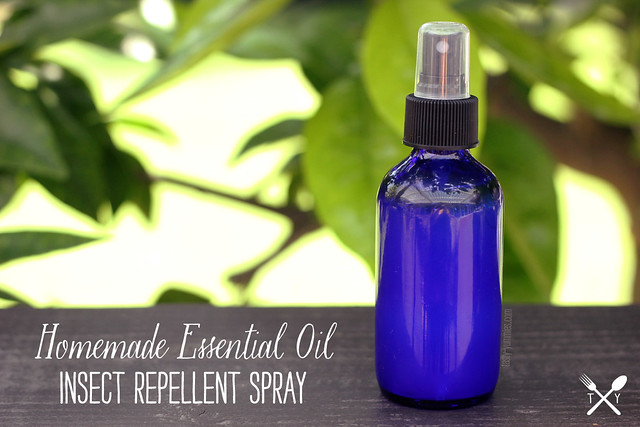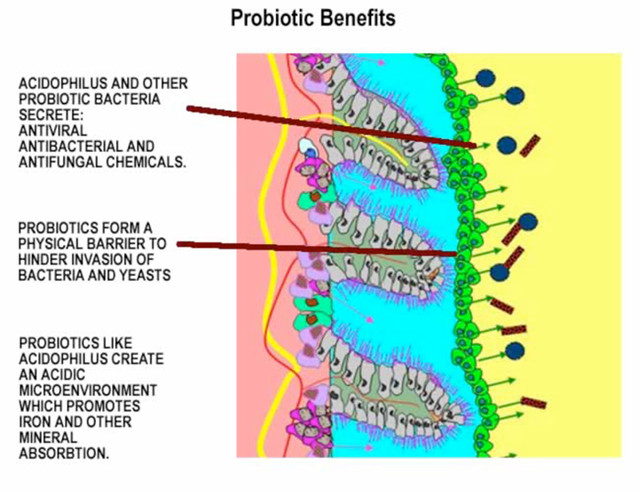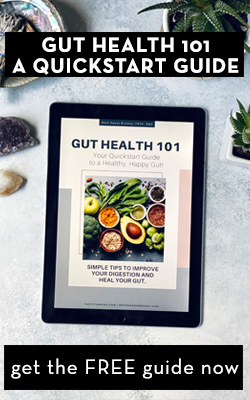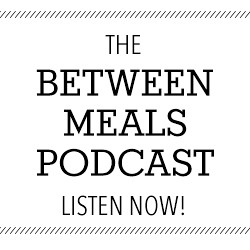-
Holiday Gift Guide: Living Well
Hey all! I am super excited to be partnering with some really great brands this season to bring you the first-ever Tasty Yummies Holiday Gift Guide. This 5-part series will go live every Tuesday until the week before Christmas. Each week, I will be featuring a different theme with products from some of my very favorite companies. I have been working very hard to bring you some really great stuff! So please, click over to their sites and show these wonderful, mindful companies some love this holiday season and if you buy, please tell them that Tasty Yummies sent you. Also, stay tuned for some amazing features and giveaways with a few of these great brands throughout this holiday season. To see the other gift guides from this series head over here.
-
The Benefits of Probiotics
I am very excited today to share this post with you. Not only is the lovely Eliza Schneider of Embodied Emergence joining us again, to share her thoughts on probiotics, but I am also sharing some great probiotic encouraging recipes from some wonderful friends of mine, as well. Probiotics have single-handedly changed the game for my always troubled gut, my only complaint of probiotics is that I didn’t learn of them sooner. I am so happy Eliza took some time to explain probiotics and share all of the amazing benefits we get from them.
——————————————————————————————
If you’re interested in taking better care of your digestion you’ve surely been hearing buzz words like “probiotic,” “prebiotic,” “digestive enzymes,” “intestinal flora”… don’t be scared by these terms! You’re not alone if you’re thinking “WTF is this biotic stuff all about? Should I be taking supplements? Do I need this stuff? What kind should I be getting?….!!??”
Don’t fear! The digestive detective (my new self-title, haha) is here to “break it down for you,” so to speak.
Today we’re going to focus on your intestines. These windy, long intestinal tunnels have villi (tiny hairs) capture the nutrients and send them into your blood stream. These villi are covered with tiny bacteria (probioitics). The probiotics repel yeast, bad bacteria, and fungi from getting into the blood stream. It is VITAL that the nutrients are able to absorb into the blood stream at this point in the digestive process, and the probiotics assist in allowing this to happen. The intestines are the final frontier for the digested food before it’s moved into the colon and then released as waste.
On average, we have over 1,000 different types of bacteria that live in our digestive track and help to break down food and absorb nutrients! (Amazing, right!?) But sadly, things like antibiotics and diets filled with processed foods can cause these helpful bacteria to die off. As I mentioned in a previous blog post on POO, foods that cause inflammation in the body can cause the villi to be covered in a mucous that prevents mineral and nutrient absorption! This in turn can cause problems like constipation or diarrhea, IBS, abdominal pain, cramps, bloating and other not-so-fun digestive problems.
Something to be aware in today’s factory-farmed world is that there can even be trace antibiotics in the meat you are eating. Conventional farmers often add antibiotics to animals who are grown close together and are prone to bacterial infections. Also, some fish are packed in antibiotics so that they don’t develop bacteria on them as they are shipped to stores. By choosing organic fish and meats you’ll avoid these risks.
The GOOD NEWS is that probiotics (supplements that help rebuild the intestinal bacterial [AKA flora]) can relieve many of these problems! Probiotics are microorganisms that offer some form of health benefit to the host. Prebiotics, on the other hand, are a special kind of dietary fiber that nourish the existing bacteria already living in the colon. They are naturally occurring in many plants. Basically, prebioitics are fibers (non-living) that help feed the good bacteria (probioitics!).
In this post, we are going to focus on PRObiotics, the actual beneficial bacteria that we ingest either in foods, or through supplements and are produced naturally (in a healthy body) in our intestines.
Some foods with natural probiotics in them are:
- Plain yogurt (Be sure to pick one without too many filler sugars and that says something like “live and active cultures” to be sure you’re getting good bacteria!)
- Kefir (fermented milk drink made with kefir grains)
- Fermented foods like sauerkraut, pickles, kimchi, etc
- Miso (fermented soybean paste… makes great soups, and yummy dressings!)
- Tempeh (fermented soybean)
- Kombucha (basically bacterial cultures that in a tea-based drink)
- Dark Chocolate (YESS!!!)
- Olives (also go through a brine-fermenting process) Read the rest of this entry »
-
How-to Make Homemade Essential Oil Insect Repellent Spray

I am not sure why, but I seem to be one of those people that always gets bit up by bugs, even when no one else is. I can be in a group of 5 or 6 other people and I will seemingly be the only one. I must taste really good. It must be all that healthy, real food! After getting bit up pretty good, the first few weeks of summer, I was determined to do some research and make my own homemade essential oil insect repellent spray.
There are many essential oils, known for being excellent natural insect repellents.Here are just some of them: Citronella, Clove, Lemongrass, Lemon Eucalyptus, Cedarwood, Rosemary, Tea Tree, Eucalyptus, Cedar, Catnip, Lavender, Peppermint, Basil, Rose Geranium, Cinnamon Oil, Thyme, Lemon, Orange, Pine
Many of these different essential oils work especially well for specific pests, according to the research I have done, here are some of the more well known pests and essential oils that work as repellents for them:
Mosquitos – citronella, lemon eucalyptus, peppermint, lemon, eucalyptus, catnip, basil, clove, thyme, lemongrass, geranium, lavender
Fleas – cedarwood, citronella, eucalyptus, tea tree oil, lemongrass, lavender, orange, pine,
Ticks – rose geranium, juniper, rosewood, thyme, grapefruit, oreganoSome studies have also shown, additional effective ingredients include: Neem Oil, Soybean Oil, Vodka, Garlic and Vanilla Extract







